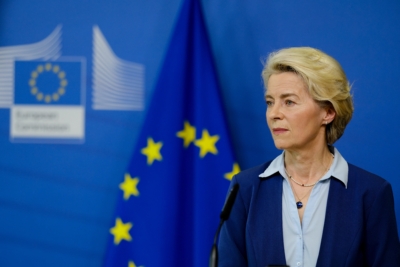The following op-ed first appeared in the EU Observer on the 11th of July 2017:
Blaming Brussels is one of the easiest techniques for any politician to make an excuse towards their national electorate. Don’t want to spend additional money on social housing? Blame it on strict deficit rules set in Brussels. A company is complaining about specific regulation? Not your fault, it was ‘imposed’ by Brussels. But who do you blame when you cannot blame Brussels because you ‘are’ Brussels? The current negotiations for a mandatory EU lobby register provide an interesting answer to that question.
Let’s have a quick look at what these negotiations entail. For years citizens have asked for more transparency and better rules around lobbying in Brussels. Millions of citizens have protested, petitioned or otherwise voiced their concerns over the lack of transparency and the hidden influence of corporate lobbyists in Brussels. Rightly or wrongly it has played an important role in almost any major debate, be it TTIP, Brexit or ongoing attacks by Eurosceptics. Lobbyists themselves strongly support stricter rules and more transparency.
In this context the European Commission proposed a ‘mandatory lobby register’ almost one year ago. Fearing that a legislative proposal would not find the necessary majorities, the Commission suggested a quick fix based on an agreement between Parliament, Council and Commission. The mechanism to make the register mandatory was that the institutions would agree to refuse access to those lobbyists not willing to register. Indeed, the Juncker Commission made an important step in that direction in 2014 by introducing rules for Commissioners and their closest advisors.
The basic idea now was to extend this rule of “no registration, no meeting” and the publication of those meetings from the Commission to the Council and Parliament. The Council has so far abstained even from the voluntary register. Parliament has traditionally been the strongest supporter of a mandatory register. Both institutions have been discussing their position on the proposal and things are not looking too promising.
The Council knows that some progress is necessary and that it needs to be more transparent. When it comes to the details however its reservations persist. The main lobby targets of the Council are Member States representations, governments back in capitals across Europe and the rotating presidency in particular. Covering anything beyond the Council secretariat (which is probably the least lobbied part of the EU Institutions) by new rules does not seem to find support. Many point to the fact that everything beyond the secretariat falls under national competence and would have to be done by Member States.
The Parliament is ambitious in asking for more transparency of the other institutions. Applying the “no registration, no meeting” rule to MEPs however seems to pose problems as the chief negotiators outlined in an op-ed. In December last year a majority of MEPs voted to introduce the mandatory publication of lobby meetings for all Parliamentarians. Unfortunately however, the majority was not strong enough to change the Parliament’s internal rules. Now the Parliament’s legal service has issued an opinion which indicates that both preventing meetings with unregistered lobbyists, or making publication of meetings mandatory, would be in violation of the ‘free mandate’.
So when citizens strongly support lobby transparency, when Brussels lobbyists are all in favour of a better register, but your EU institution does not seem to want to create the dearly-needed mandatory EU lobby register, who do you blame? The lawyers. The legal services of Parliament and Council have come up with ‘national competence’ and ‘free mandate’ excuses that prevent any meaningful progress. Parliament’s legal analysis conveniently finds that such transparency rules should indeed apply to assistants, political advisors and civil servants, but not the main target of lobbying: members themselves. In their view it might somehow hinder them from exercising their mandate freely. Doubts have already been cast on the legal reasoning of the institutions. If these assessments are maintained, and both MEPs and most of Council exclude themselves from any lobby transparency rules, the Commission’s plan for a ‘quick fix’ will have failed.
In both cases, national politicians blaming Brussels and in the case of Brussels politicians blaming legal challenges, what’s really is at hand is a lack of political will and leadership. We have seen many examples over the last years where even contradicting treaty rules did not prevent or slow down decisions that had full political backing, be it the “no bailout clause” or the setting up of an entire crisis-response institutional structure outside the EU treaties.
The mandatory lobby register was the main proposal of the Juncker Commission to make the EU more democratic, more accountable and more transparent. This important project must not fail. Rather than deploying lawyers to find obstacles we need politicians to lead the way to more lobby transparency. Under their guidance lawyers will find a way to word the rules in a way that will not contradict existing rules.




